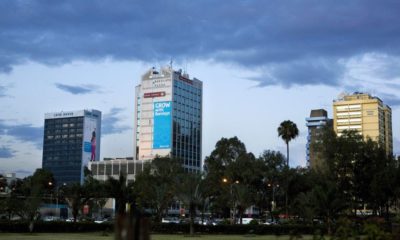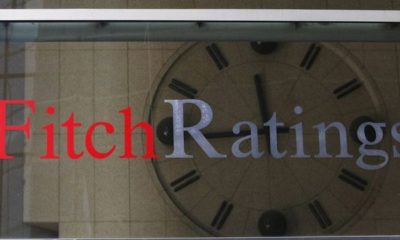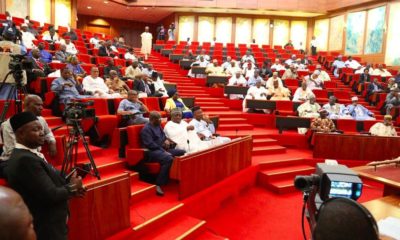The ongoing economic reforms of President Bola Ahmed Tinubu have ignited a wave of excitement within the foreign investor community, signaling a remarkable shift in Nigeria’s position on the global stage.
“The excitement about the new president and his reforms is palpable,” stated a senior banker at a U.K.-based financial institution.
“I was in three cities in the United States last week to see clients and everybody was talking about Nigeria. “He has put Nigeria back at the top of the agenda, in a positive way,” the banker said.
Tinubu’s reforms have succeeded in placing Nigeria at the forefront of international attention, generating positive expectations for the country’s economic future.
Nigeria is on the lips of foreign investors again after nearly a decade of slipping under the radar.
Such is the rate at which President Tinubu has taken the world by surprise with bold reforms that looked impossible in the eight years prior to his assumption of Nigeria’s top office late last month.
Costly petrol subsidies were gone on his first day in office, paving the way for a tripling in petrol prices. He immediately embarked on “thorough house-cleaning of monetary policy” with the suspension of Godwin Emefiele as CBN governor followed by the deregulation of the foreign exchange market.
The reforms have brought pain to Nigerians who now spend three times more to fill their car tanks.
What Tinubu has achieved in weeks, his immediate predecessor, Muhammadu Buhari, could not in years. That leads to the first set of questions foreign investors have been asking about Nigeria in the past week.
“Why is the new president able to do these things and Buhari wasn’t and why is no one protesting,” one foreign investor asked.
Buhari had avoided these tough calls for fear of the social unrest they could spark in a country where poverty is rife and inflation is at a record-high.
Tinubu has, however, made light work of the difficult reforms and has done so while quelling protests that initially threatened to erupt as a result.
Taking away cheap fuel from people that had grown accustomed to the practice for many years was not going to happen without a fight.
Joe Ajaero, the Nigeria Labour Congress (NLC) president had called out his members to protest the subsidy removal riding on the confidence from 2012’s success when the government eventually backed off from an attempt to end the costly subsidy. But the story is scripted differently this time.
A counter-offensive from Tinubu began with a well-written legal paper that provided ammunition for a court action to stop the planned strike.
The paper had given solid grounds to see the position of NLC as illegal following a judgement by the Supreme Court in a similar case instituted in 2002.
In that case brought against the electricity workers which sought to stop the privatisation of state assets, the Supreme Court justices ruled on May 24, 2010, that the “right of the members of a trade union to assemble together and act as a trade union is not absolute and must be exercised within the ambit of Section 45 of the 1999 constitution which states that none of the fundamental rights guaranteed under the constitution shall invalidate “any law that is reasonably justifiable in a democratic society in the interest of defence, public safety, order, public morality or public health.”
In the counsel to the government, it was said that the removal of subsidy on petrol is a matter of government policy, and it does not in any way concern the basis for the existence of a trade union in Nigeria, therefore, the NLC cannot be at the forefront of discussions by the government as to how to manage the implementation of subsidy removal.
The conclusion was that the only credible parties to the discussion should be the tiers of government and especially the state governors who constitute the national economic council.
Tinubu also had to pull his political strings to ensure there was no going back on the petrol subsidy removal.
There were political machineries set up to challenge the call for the strike.
Governors, political leaders, friends, and allies of Tinubu moved quickly to douse the fire in their own states, and it soon became clear that even if the strike had commenced, it was going to be a near-total failure in the north.
The opposition parties could not also resist the fuel subsidy removal, as some of their governors had been in the room last year when a collective decision was made under the auspices of the NEC to define petrol subsidy as being harmful and unsustainable and proposed ways for removing it and dealing with the consequences of its removal.
Following this, a reform that had been stuck for at least eight years is beginning to occur in Nigeria with foreign investors talking about it.
“He’s clearly a deft politician and a smart man,” a former senior government official said. I tell people I get the sense he’s too rich and too old not to do the right thing.
“He has always had the capacity to bring people together: he had non-indigene commissioners in his cabinet and brokered the alliance that brought the north and the south to vote for Buhari,” the government official said.
The dust had not fully settled on the subsidy removal when Tinubu suspended Emefiele, the CBN governor. The acting governor immediately floated the naira, another reform that was stuck for eight years, and the stock market rallied to a 15-year high.
Foreign investors also wonder who the next CBN governor will be. Tinubu’s admittance of the need for monetary policy house cleaning gives some comfort to investors spooked by Nigeria’s unorthodox policies.
“We are certainly going in the right direction and it’s very exciting to see. If we continue like this, Nigeria will be unrecognisable in four years,” the CEO of a top Nigerian investment bank said.
At least three foreign banks wrote about Nigeria last week, the highest frequency since 2015.
Standard Chartered, JPMorgan and Goldman Sachs have all noted their positive surprise at the speed in the execution of reforms in Africa’s largest economy. They see even more surprises ahead.
“We believe there is room for incremental positive surprises with respect to reform depth and execution speed,” JP Morgan analysts said.
“We had high expectations for the new administration’s reform agenda, however, the speed of execution has proven to be a positive surprise,” the analysts said.
A lot of the talk in the foreign investor community is also around what happens next and what Tinubu’s cabinet will look like.

















